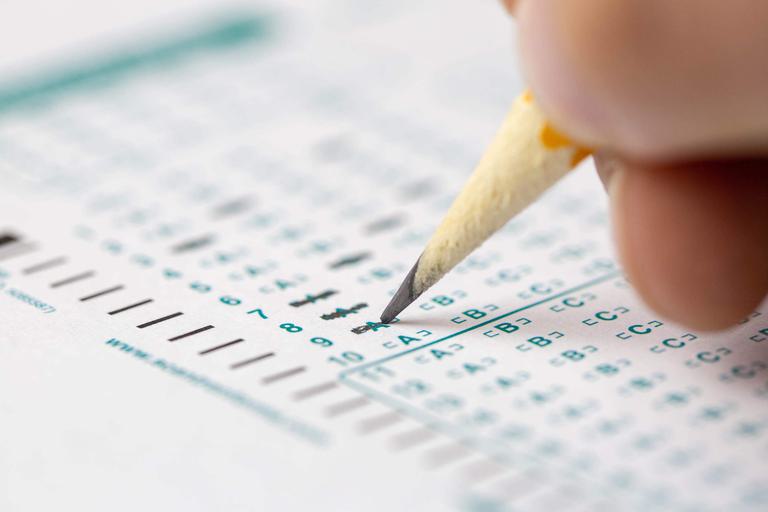
Education
Ray Carter | September 30, 2020
State tests to resume, measure Oklahoma learning loss
Ray Carter
When COVID-19 prompted the spring closure of in-person instruction at Oklahoma schools, state officials quickly sought a federal waiver to suspend state testing of students and issuance of school report cards.
It appears the testing suspension won’t continue for a second year.
“We are moving forward with a plan for state testing in the spring,” Carolyn Thompson, chief of government affairs for the Oklahoma State Department of Education, told members of the House Common Education Committee during a Wednesday meeting.
Thompson told lawmakers there is no indication the U.S. Department of Education will approve additional waivers and the federal agency may lack the legal authority to do so anyway. She also said congressional leaders “on both sides of the aisle” have indicated “there’s no interest in waiving the testing requirement” again through new legislation.
Even if congressional leaders consider additional testing waivers, Thompson indicated it may not be good policy.
“To be frank, at least from our position, we need that data,” Thompson said. “Schools need that data. We have to have it so that we know where our kids are.”
The spring transition to online learning—and cessation of in-person instruction—is believed to have caused severe learning losses in Oklahoma and nationwide. In many instances, schools introduced no new material during the spring and stopped grading most material.
An April report by the “Collaborative for Student Growth” predicted students would return in fall 2020 having achieved only 70 percent of the normal annual learning gains in reading and 50 percent of typical gains in math, and that some students would be “nearly a full year behind what we would observe in normal conditions.”
Andrea Castañeda, chief innovation officer at Tulsa Public Schools, recently told the Oklahoma State Board of Education that officials in her district believe severe learning loss occurred for many students during the spring shutdown.
“We are anticipating, based on national data, that our least-reached students will have lost approximately a year more learning than would have otherwise been the case because of the COVID-related interruptions,” Castañeda said. “So if I’m a student who might otherwise have been predicted to be two years below grade level, we’re anticipating that that student will now be approximately three years below grade level.”
A recent lawsuit filed against Stillwater Public Schools indicates that learning loss is increasing in the current school year at districts that have not returned to full-time in-person instruction. That lawsuit, filed by parents who asked the court to order the Stillwater district to reopen, said students’ academic progress has been stymied by distance learning with many students now failing their classes.
Even before COVID-19 disruptions, academic achievement in Oklahoma was below national norms and even headed the wrong direction. In 2019, state Superintendent of Public Instruction Joy Hofmeister reported that academic achievement on state tests was lower in 2019 than in 2017, despite a dramatic increase in state school spending. A downward trend was noted for math and fifth-grade science and a “steeper downward trend in English language arts (ELA) performance from 2017 to 2019.”
The total share of Oklahoma children performing below grade level on 2019 tests ranged from 61 percent to 71 percent among all grades tested in English language arts, and from 57 percent to 77 percent in all grades tested in math. The share performing below grade level in science stood at 62 percent for fifth graders and 60 percent among eighth graders, the only two grades tested in that subject.
Pam Deering, executive director for the Cooperative Council for Oklahoma School Administrators (CCOSA), a lobbying organization that represents school administrators, told legislators that 55 percent of districts surveyed by her organization are using in-district testing to determine this year’s student-remediation needs.
However, the district-level data generated by those tests is not necessarily shared with parents and does not provide a uniform, statewide reporting of academic results.
Thompson said all state tests will be conducted online next spring, marking the first time the entire process has been conducted electronically.
Rep. Rhonda Baker, a Yukon Republican and former teacher who chairs the House Common Education Committee, said parental concern about learning loss is growing.
“In my area, and I know others have heard this as well, parents are concerned,” Baker said. “They do feel like their child is now a full nine weeks behind.”

Ray Carter
Director, Center for Independent Journalism
Ray Carter is the director of OCPA’s Center for Independent Journalism. He has two decades of experience in journalism and communications. He previously served as senior Capitol reporter for The Journal Record, media director for the Oklahoma House of Representatives, and chief editorial writer at The Oklahoman. As a reporter for The Journal Record, Carter received 12 Carl Rogan Awards in four years—including awards for investigative reporting, general news reporting, feature writing, spot news reporting, business reporting, and sports reporting. While at The Oklahoman, he was the recipient of several awards, including first place in the editorial writing category of the Associated Press/Oklahoma News Executives Carl Rogan Memorial News Excellence Competition for an editorial on the history of racism in the Oklahoma legislature.